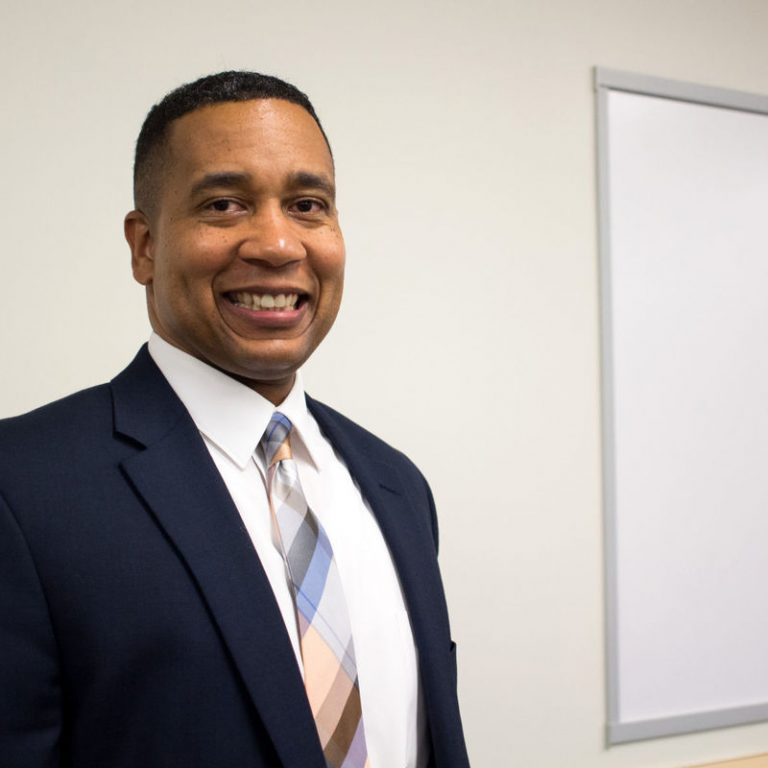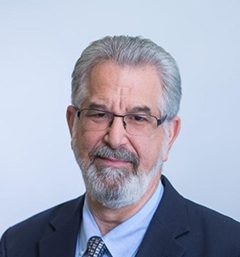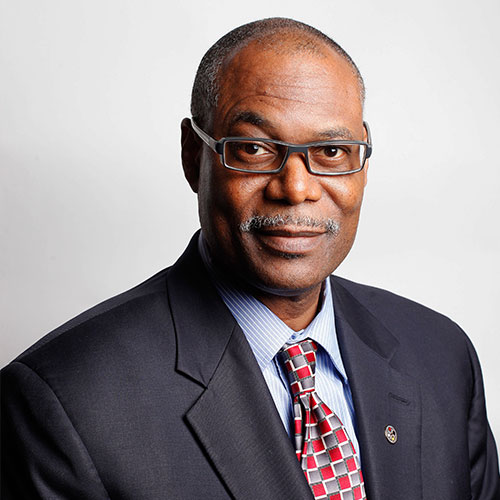Organizers
Duncan Purves (UF Department of Philosophy)

Dr. Duncan Purves is an Assistant Professor in the Department of Philosophy at the University of Florida. He specializes in ethical theory and applied ethics, focusing especially on the ethical dimensions of artificial intelligence applications. He has also written on topics including our obligations to future generations and philosophical issues related to the concepts of harm and death. His work has appeared in a number of premier academic journals and edited volumes.
William Hamilton (UF Levin College of Law)

William Hamilton is Director of the UF Law E-Discovery Project and Legal Skills Professor. An electronic discovery expert, prior to joining the faculty at UF, Mr. Hamilton served as the electronic discovery partner for his national law firm. Mr. Hamilton has taught electronic discovery at the University of Florida for the past decade and is the co-author of the LexisNexis Practice Guide Florida e-Discovery and Evidence and co-author of A Student Electronic Discovery Primer: An Essential Companion for Civil Procedure Courses.
Juan E. Gilbert (UF Computer & Information Science & Engineering)

Dr. Juan E. Gilbert is the Andrew Banks Family Preeminence Endowed Professor and Chair of the Computer & Information Science & Engineering Department at the University of Florida where he leads the Human Experience Research Lab. He is also a Fellow of the American Association of the Advancement of Science, a Fellow of the National Academy of Inventors, an ACM Distinguished Scientist and a Senior Member of the IEEE.
Presenters
Wesley Chow

Wesley Chow is a media analytics researcher in the Lab for Social Machines at the MIT Media Lab. He is also Director of Engineering for Cortico, an affiliated non-profit company responsible for handling the deployment of the Lab’s research. The Lab has completed a number of projects that have gleaned national attention, including their analysis of the spread of fake news by social media platforms. Current projects include analyzing how recommendation algorithms force political polarization in news consumption. They are also analyzing Twitter data with the aim of ultimately better understanding the “health” of media discourse. The thesis underlying the work by the Lab for Social Machines is that surfacing local issues and revitalizing local media are important to create a healthier public sphere.
Carl D. Crane, III

Carl D. Crane is a Professor in the Department of Mechanical and Aerospace Engineering and Director of the Center for Intelligent Machines and Robotics (CIMAR) at the University of Florida. Dr. Crane has been involved in research in the areas of spatial mechanisms, tensegrity systems, robotics, and autonomous navigation for over twenty five years. Current activities include the development and implementation of system architectures for autonomous ground vehicle navigation and the design and implementation of passive parallel mechanisms to be used for force control applications. Dr. Crane was team leader of the University of Florida’s 2004 and 2005 DARPA Grand Challenge autonomous vehicle development efforts and for the University of Florida’s 2007 DARPA Urban Challenge project team. Dr. Crane has authored one book and over forty papers in the area of spatial geometry and robotic systems.
Nicholas Evans

Dr. Nicholas Evans is an Assistant Professor of Philosophy at UMass Lowell. His research addresses the ethical dimensions of a variety of technologies, including synthetic biology, cyberwar, neuroenhancement and most recently autonomous vehicles. He has published extensively on these issues. He is the Principal Investigator on a National Science Foundation grant to address ethical issues that arise in the development of computer algorithms for autonomous (self-driving) vehicles.
Andrew G. Ferguson

Andrew Ferguson is a Professor of Law in the David A. Clarke School of Law at the University of the District of Columbia. A leading scholar examining the constitutional and social implications of the use of predictive analytics and surveillance in policing, he also serves as a Senior Visiting Fellow at the Harvard Law School’s Criminal Justice Policy Program. He also serves as a Policing Data Fellow at the NYU Law School’s Policing Project. Both projects focus on examining the civil rights, privacy, and public safety aspects of new surveillance technologies.
Professor Ferguson’s recent book The Rise of Big Data Policing: Surveillance, Race, and the Future of Law Enforcement (NYU Press) examines how surveillance technology and predictive analytics shapes modern policing. Professor Ferguson’s articles have appeared in the University of Pennsylvania Law Review, the California Law Review, the Cornell Law Review, the Minnesota Law Review, the Northwestern Law Review, the Vanderbilt Law Review, the University of Southern California Law Review, the Notre Dame Law Review, and the Emory Law Journal among others.
Sven Krome

Dr. Sven Krome is a Research Associate in Information Science at Cornell Tech. His research interests are design-based explorations of experiential factors of future technologies such as autonomous driving, human-robot interactions and intelligent infrastructure. Conducting research in academia and industry, he focuses on strategies to investigate novel interactions with safety-critical, future technologies in real-world scenarios. His current research investigates safety perceptions of advanced traffic models for autonomous driving from a first-person perspective.
Kenneth W. Goodman

Dr. Kenneth Goodman is a Professor of Medicine at the University of Miami and founder and director of the University of Miami Miller School of Medicine’s Institute for Bioethics and Health Policy. He is also co-director of the university’s Ethics Programs with appointments in the Department of Philosophy, Department of Health Informatics, Department of Public Health Sciences, among others. The Ethics Programs have been designated a World Health Organization Collaborating Center in Ethics and Global Health Policy, one of nine in the world.
His latest book, Ethics, Medicine, and Information Technology: Intelligent Machines and the Transformation of Heath Care (Cambridge University Press 2016) identifies and analyzes a number of issues in biomedical informatics. He has also co-authored a book on artificial intelligence, edited a book on ethics and medical computing, co-edited a volume on artificial intelligence, and published and presented numerous papers in bioethics.
Katerina Hadjimatheou

Dr. Katerina Hadjimatheou is Senior Research Officer in the Department of Sociology at the University of Essex. She publishes academic articles in the ethics of policing, security technologies, border control, trafficking and surveillance. Currently, she is working on the EU-funded project MEDI@4SEC looking at the ethical implications of the use of social media for public security and for the EU-funded PERICLES project, which produces counter-radicalization tools for police and others.
She sits on the Ethics Advisory Board of the EU-funded research project DRIVER and on UK police-appointed ethics panels relating to Undercover Policing and Digital Policing. She is Chair of the Gloucestershire Constabulary Ethics Panel and a member of the National Crime Agency’s Independent Reference Group.
Matthew Liao

Dr. Matthew Liao is the Director of the Center for Bioethics at NYU. The author and editor of four books and over 50 articles, Dr. Liao’s research spans across theoretical ethics and epistemology, bioethics, and technology ethics. His recent edited volume Moral Brains: The Neuroscience of Morality (Oxford University Press, 2016), explores what brain science tells us about our thinking about morality. In his book, The Right to be Loved, he explores the philosophical foundations underpinning children’s right to be loved, and proposes that we reconceptualize our policies concerning adoptions so that individuals who are not romantically linked can co-adopt a child together. His current research explores the ethical implications of artificial minds.
Zachary Chase Lipton

Dr. Zachary Lipton is an Assistant Professor of Business Technologies at Carnegie Mellon University’s Tepper School of Business. His research interests span both methods, applications, and social impacts of machine learning. He is especially interested in modeling temporal dynamics and sequential structure in healthcare data, e.g., Learning to Diagnose. He also works on critical questions related to how we use ML in the wild, yielding The Mythos of Model Interpretability, and more recent work on the desirability and reconcilability of various statistical interpretations of fairness.
Mindy McAdams

Mindy McAdams is Knight Chair in Journalism Technologies and the Democratic Process in the University of Florida’s Department of Journalism. Professor McAdams studies new communication technologies, online journalism, interactivity and multimedia, the Internet, and changes in societies that are related to the adoption and diffusion of new communication technologies. She is especially interested in ways of ensuring that people in a democratic society have the information they need to effectively self-govern.
Before moving to Florida, she worked on the Metro desk at The Washington Post and at TIME magazine in New York. In 1994, she was the first content developer at Digital Ink, The Washington Post’s first online newspaper.
Kenneth Nunn

Kenneth Nunn is the Associate Director of the Center on Children and Families at the UF Levin College of Law and the Assistant Director of the Criminal Justice Center. His teaching and scholarship expertise lies in the fields of Criminal Law, Criminal Procedure, Race Relations and the Law, Police Brutality, Race and the Criminal Process, Cultural Studies, and African and Africa-centered thought. Along with Sharon Rush, he co-founded the Center for the Study of Race and Race Relations, one of a few law school centers that focus on race.
Gualtiero Piccinini

Gualtiero Piccinini is a Professor of Philosophy at the University of Missouri, Saint Louis. His research is primarily in the area of philosophy of mind, with an eye to psychology, neuroscience, and computer science. His main current interests include computational theories of mind, the relation between psychology and neuroscience, consciousness, and intentionality. His research has been funded by the National Science Foundation, the Institute for Advanced Studies at the Hebrew University in Jerusalem, the National Endowment for the Humanities, the Charles Babbage Institute, and the Andrew Mellon Foundation. Dr. Piccinini has published two books on the nature of computation, including Physical Computation: A Mechanistic Account, Oxford: Oxford University Press (2015).
Irina Raicu

Irina Raicu is the Director of the Internet Ethics Program at the Markkula Center for Applied Ethics at Santa Clara University. She is a Certified Information Privacy Professional (U.S.) and was formerly an attorney in private practice. Her work addresses a wide variety of issues, ranging from online privacy to net neutrality, from data ethics to social media’s impact on friendship and family, from the digital divide to the ethics of encryption, and from the ethics of artificial intelligence to the right to be forgotten. She holds a J.D. degree from Santa Clara University’s School of Law.
Her writing has appeared in a variety of publications, including The Atlantic, U.S.A. Today, MarketWatch, Slate, The Huffington Post, the San Jose Mercury News, the San Francisco Chronicle, and Recode. Raicu is a member of the Partnership on AI’s Working Group on Fair, Transparent, and Accountable AI.
Elizabeth Rowe

Elizabeth Rowe is Feldman Gale Term Professor in IP law at the UF Levin College of Law and Director of the Program in Intellectual Property Law. An internationally recognized expert on Trade Secret Law, she is a prolific scholar who has co-authored or contributed to several books on intellectual property and has authored numerous law review articles in leading journals. Much of her research addresses the intersection of trade secrets with employment law and/or technology, as well as the interplay between intellectual property, government policy, and innovation. She has co-authored several books on trade secrets, including the first and the leading casebook in the United States devoted exclusively to Trade Secret Law, as well as a Nutshell treatise on trade secrets. Professor Rowe’s most recent co-authored book addresses trade secrecy in international transactions. The book has been praised for its “remarkable contribution to the understanding of the legal foundations and main features of trade secret law” of eight countries.
Moderators
Lily Elefteriadou
Dr. Elefteriadou is the Director of the UF Transportation Institute (UFTI) and the Barbara Goldsby Professor of Civil Engineering at the University of Florida. Her research focus is traffic operations, traffic flow theory and simulation. She is the principal investigator of the US DOT-funded Regional University Transportation Center for Region 4 (Southeast Transportation Research Innovation Development and Education, or STRIDE). STRIDE involves nine other universities in the southeast and is funded with approximately $14 Million from the US DOT plus an equal amount of cost sharing from non-federal sources (period of performance is January 2016 to January 2021). STRIDE focuses on congestion mitigation. She has authored or co-authored nearly two hundred publications and reports related to traffic operational quality and highway design, as well as a textbook titled “Introduction to Traffic Flow Theory”.
Gene Witmer
Gene Witmer is an associate professor of Philosophy at the University of Florida. His research focuses on metaphysics and philosophy of mind, with a special focus on physicalism. He has published extensively on these topics in top tier internationally recognized journals.
Brenden Beck
Brenden Beck is an assistant professor of Sociology and Criminology & Law at the University of Florida. He researches how criminal justice systems respond to socio-spatial and economic changes. He is currently analyzing how low-level arrest rates change during gentrification and municipal fiscal crisis. Another active research project describes the decline of “broken windows” policing. He has published his research in journals including Crime & Delinquency and Journal of Ethnic and Migration Studies.
